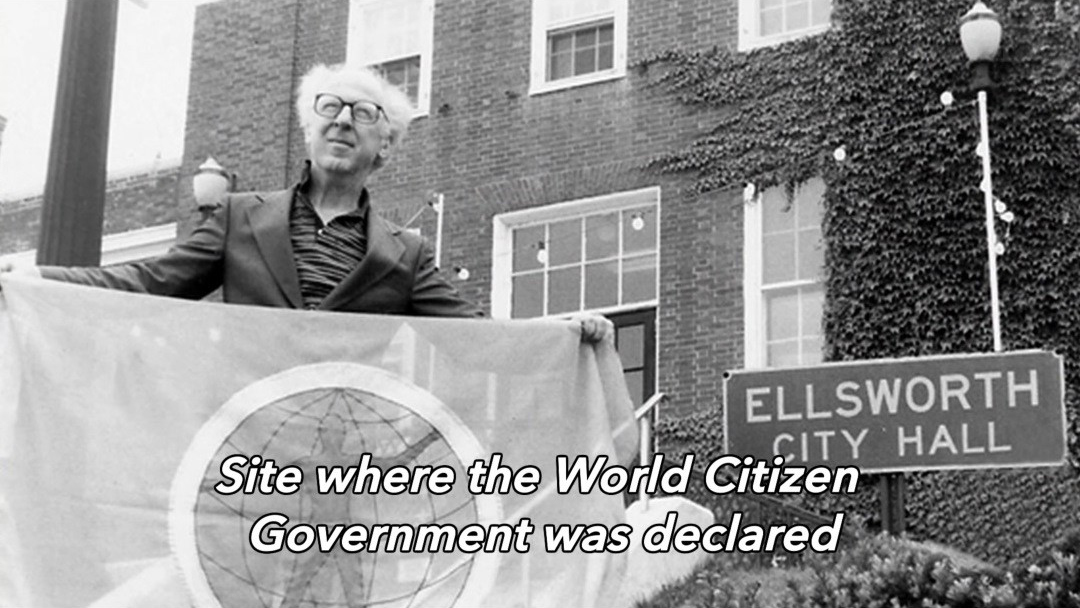THE ORAN DECLARATION
Delivered by World Citizen Garry Davis to the General Assembly of the United Nations, Palais de Chaillot, Place de Trocadero, Paris, France on November 22nd, 1948.
Mr. Chairman and Delegates:
I interrupt you in the name of the people of the world not represnted here. Though my words may be unheeded, our common need for world law and order can no longer be disregarded.
We, the people, want the peace which only a world government can give.
The sovereign states you represent divide us and lead us to the abyss of Total War.
I call upon you no longer to deceive us by this illusion of political authority.
I call upon you to convene forthwith a World Constituent Assembly to raise the standard around which all men can gather, the standard of true peace, of One Government for One World.
And if you fail us in this…stand aside. for a People’s World Assembly will arise from our own ranks to create such a government.
We can be served by nothing less.
Worldwide support, including prominent thinkers such as Albert Einstein, Albert Camus, Albert Schweitzer, Lord Boyd-Orr, Claude Bourdet, Richard Wright, and Carlo Levi, brought increased attention from the media and public alike.
Dr. Herbert Evatt, then president of the General Assembly, later received Davis and a world citizenship delegation promising to transmit to the delegated the world citizen petitions.
On 9 December, 1948, at the Velodrome d’Hiver in Paris attended by over 20,000, Davis read Evatt’s response to the question as to whether the UN had a definite plan to make world peace.
Dr. Evatt’s answer was a categorical no.


